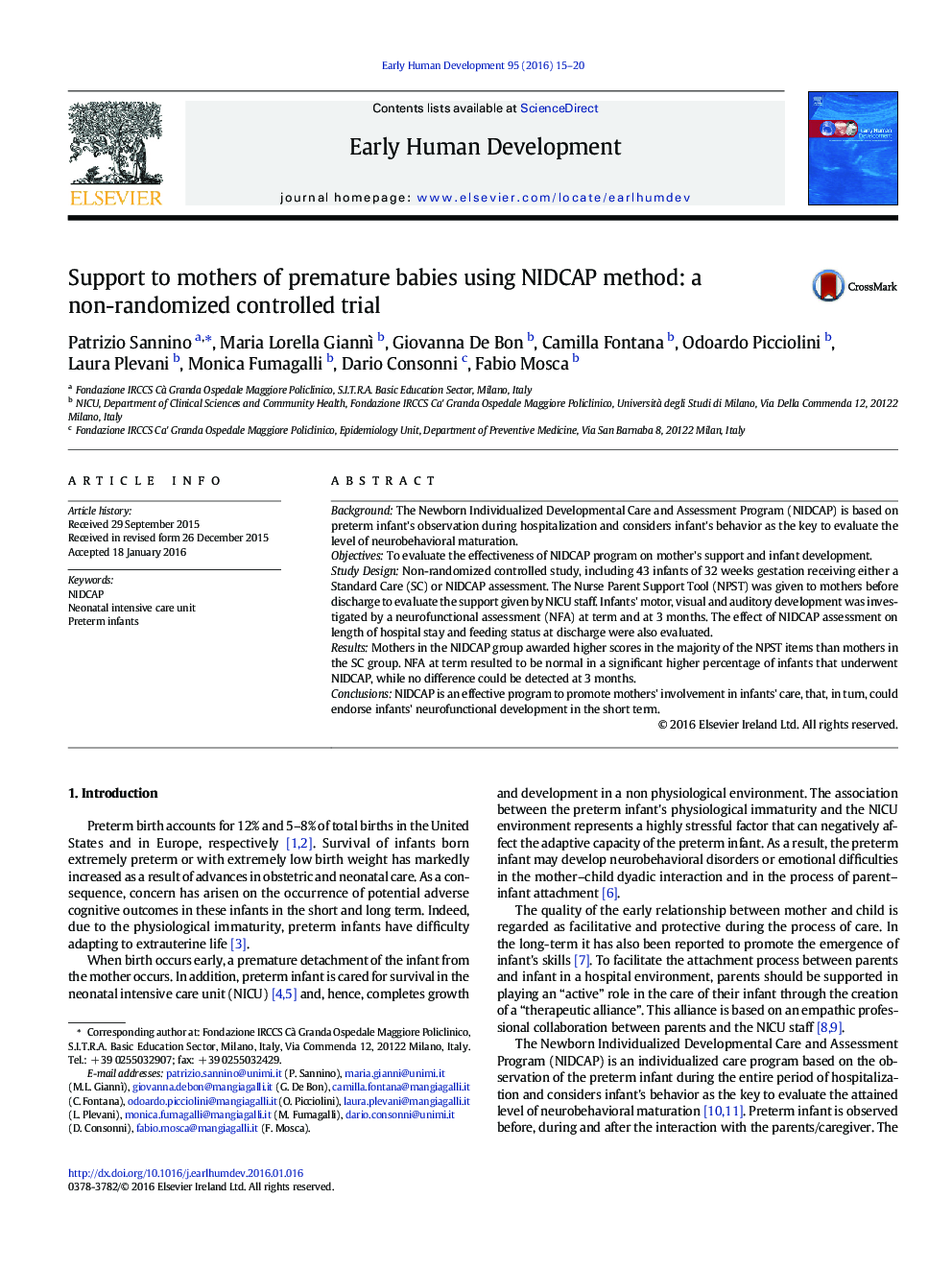| Article ID | Journal | Published Year | Pages | File Type |
|---|---|---|---|---|
| 3917677 | Early Human Development | 2016 | 6 Pages |
•A non-randomized controlled study, and infants of 32 weeks gestational age received either a standard care (SC) or underwent NIDCAP assessment.•The mothers in the NIDCAP group feel more confident, to understand and take care of their child.•Percentage of infants fed any human milk at discharge was higher in the NIDCAP group than in the SC group.•Neurofunctional Assessment resulted to be normal in a significant higher percentage of infants that underwent NIDCAP.
BackgroundThe Newborn Individualized Developmental Care and Assessment Program (NIDCAP) is based on preterm infant's observation during hospitalization and considers infant's behavior as the key to evaluate the level of neurobehavioral maturation.ObjectivesTo evaluate the effectiveness of NIDCAP program on mother's support and infant development.Study DesignNon-randomized controlled study, including 43 infants of 32 weeks gestation receiving either a Standard Care (SC) or NIDCAP assessment. The Nurse Parent Support Tool (NPST) was given to mothers before discharge to evaluate the support given by NICU staff. Infants' motor, visual and auditory development was investigated by a neurofunctional assessment (NFA) at term and at 3 months. The effect of NIDCAP assessment on length of hospital stay and feeding status at discharge were also evaluated.ResultsMothers in the NIDCAP group awarded higher scores in the majority of the NPST items than mothers in the SC group. NFA at term resulted to be normal in a significant higher percentage of infants that underwent NIDCAP, while no difference could be detected at 3 months.ConclusionsNIDCAP is an effective program to promote mothers' involvement in infants' care, that, in turn, could endorse infants' neurofunctional development in the short term.
